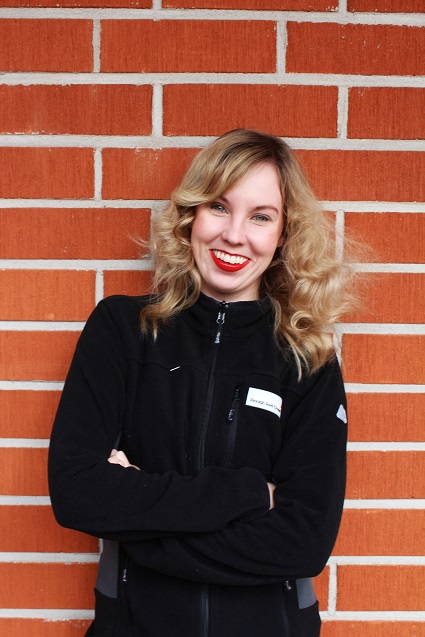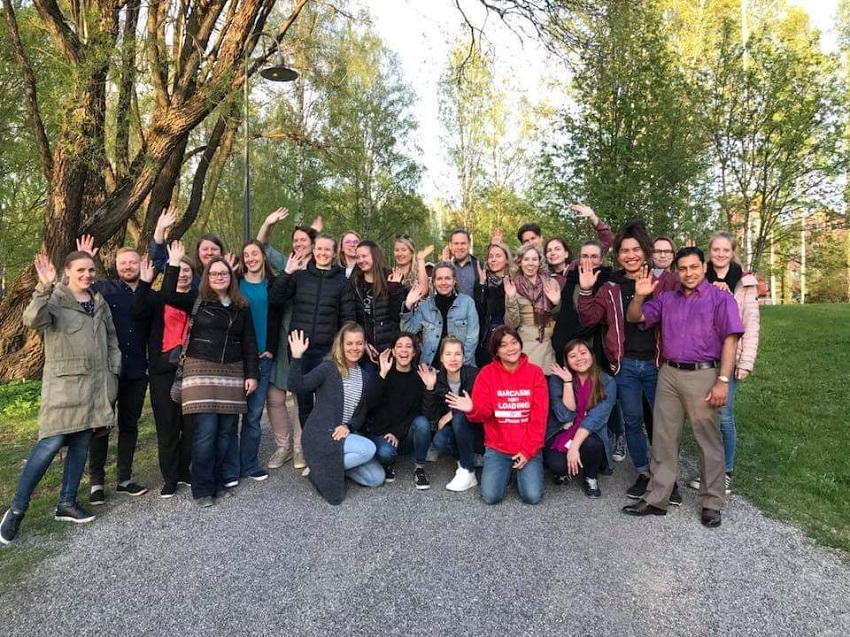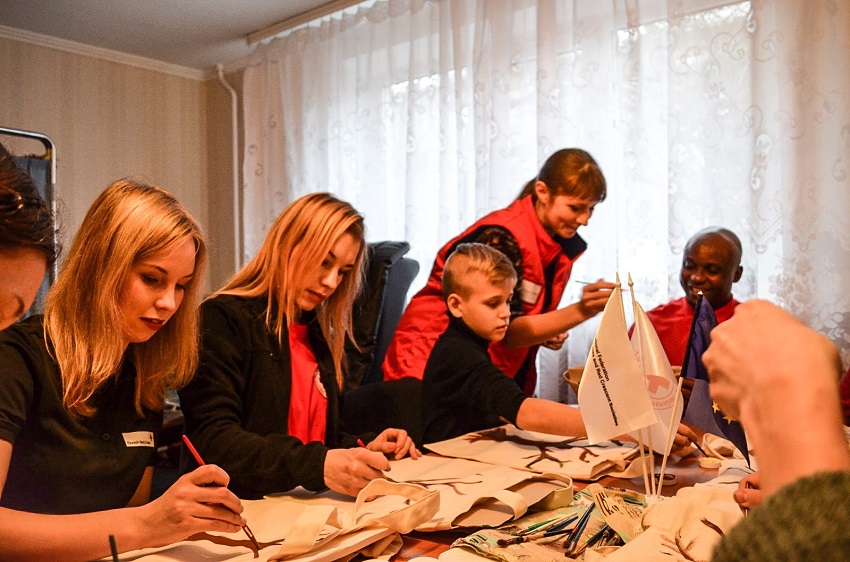EU Aid Volunteers: A Story from Ukraine
For the last five years, the EU Aid Volunteers initiative has been training and deploying volunteers to contribute to humanitarian projects worldwide. Managed by the European Commission’s Directorate General for European Civil Protection and Humanitarian Aid Operations (DG ECHO) and the Education, Audio-visual and Culture Executive Agency (EACEA), the programme aims to strengthen the resilience of vulnerable communities, while providing opportunities for EU citizens to get involved in humanitarian actions.

Finnish Red Cross. © Finnish Red Cross
We caught up with Karoliina Rajala, who was deployed to Ukraine by the Finnish Red Cross in the context of the EU Aid Volunteers initiative between September 2019 and February 2020.
How did you prepare for your deployment to Ukraine?
I first got the news that I was going to be deployed to Ukraine by the Finnish Red Cross in February last year. My hosting organisation would be the Ukrainian Red Cross Society (URCS) and I was to work on communication tasks in Kyiv.
This started a comprehensive preparation process for the mission. The first step was an intensive two-week EU Aid Volunteer training that was held at the Austrian Study Centre for Peace and Conflict Resolution in April. The topics covered ranged from understanding the EU’s civil protection and humanitarian aid policies, to practicing radiocommunications and managing personal safety. For me, the highlight of the training was a 2.5-day simulation during which we got to apply the skills
Looking back, I think that the EU Aid Volunteer training is one of the best as well as most intense educational experiences that I have had. During the two weeks, you really get to know the other participants and I was happy to stay in touch with many of them after and to hear about their experiences with different humanitarian organisations around the world.
I then followed Finnish Red Cross’ Basic Training Course for International Mobilization and Preparation for Action (IMPACT) in May. Doing the IMPACT training was something of a dream come true, since I had always wanted to apply, but knew that getting into the training was extremely competitive. As a matter of fact, I never thought that I would get to complete it at such a young age. It is really great that the EU Aid Delegates deployed by the Finnish Red Cross get to join both the EU Aid Volunteer and the Finnish Red Cross delegate reserves.

Finally, in August, I attended a mission briefing at the Finnish Red Cross’ headquarters in Helsinki with the other EU Aid Delegates going to Ukraine. We were given more information about mission-related practicalities as well as country context. I also had the first discussion with my Finnish Red Cross mentor, who provided guidance throughout the mission. The mentoring process was a great addition to the experience and I and my mentor have stayed in touch also after.
What were your tasks during your deployment? Can you share one of your achievements during your time there?
I worked in the headquarters of the Ukrainian Red Cross Society in Kyiv. There was also another EU Aid Delegate supporting the work of the communications unit with me. It was nice to have someone to share the experience and learning process with. Our tasks were diverse, we took part in planning and executing campaigns, developing media relations, training volunteers, and creating content for different channels.
One of our biggest projects was an internal communication survey that invited staff and volunteers from branch and district offices around the country to reflect on the organisation’s internal communications and express development needs. The survey was carried out to support the updating process of URCS’s communication strategy.

© Finnish Red Cross
What were the main challenges you faced during your deployment?
During a mission, you are put in new situations and sometimes asked to carry out tasks with limited guidance. At first, this may make you feel a bit uncertain and nervous, but ultimately such situations may serve as the best learning experiences. I think it was really valuable to have another EU Aid Delegate in the communications team with me so we could support each other in moments like these and learn together.
After your deployment in Ukraine, you moved to Brussels for a full-time job. How did your volunteering experience help you?
Towards the end of my mission, I was extremely happy to find out that I had been selected for a communications officer post at a political youth organisation in Brussels. As a matter of fact, I moved straight from Kyiv to Brussels and started working the day after I moved!
My new job has given me the chance to learn more about political communication and advocacy work, which is extremely interesting. I am sure that having carried out a communications mission in Ukraine also helped me to be selected for the post.
However, humanitarian work is a part of my life and values. That is why I have applied to attend further training opportunities and hope to get the chance to be deployed on the Finnish Red Cross’ Emergency Response Unit missions in the future.
What advice would you give to someone thinking about becoming an EU Aid Volunteer with the Red Cross?
Be aware of your possible prejudices and be ready to do things in a different way. Try to strengthen your knowledge of the local language(s) and cultural awareness before you go, or as soon as you arrive in the country. Get to know the people and the organisation.
I have a background and long-term interest in post-Soviet countries. I have lived in Russia and Kyrgyzstan, but each post-Soviet country has its own particularities. I had never visited Ukraine before, so the mission gave a fantastic opportunity to learn about the Ukrainian people and culture, especially the local working culture. I think that cultural awareness and teamwork skills are key during international deployments.
To conclude, my personal philosophy is that the more something scares you at first, the better it will be for you in the end. So go for it!
For media inquiries, please contact Eva Oyón on: eva.oyon@redcross.eu or +32 2 235 09 22

